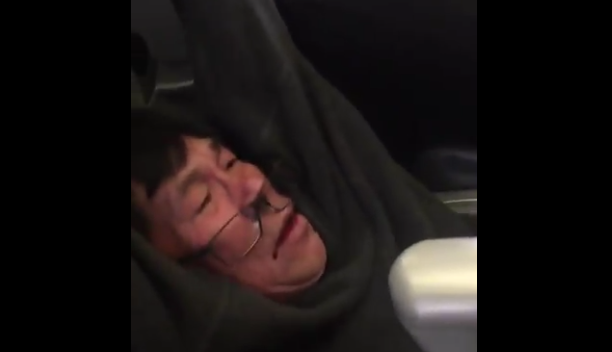United faces boycott campaign over passenger's violent removal.
10 April, 2017
4 min read


United Airlines is facing an online campaign to boycott its flights amid social media outrage over an appalling video showing a man claiming to be a doctor being dragged forcibly from a plane because the airline needed his seat to reposition staff.
A video showing the man being dragged down the aisle of United Express Flight 3411 from Chicago to Louisville, Kentucky on Sunday has gone viral around the world, become a hot media topic and provoked a social media backlash.
READ: Not all passengers are equal
The incident is PR nightmare for the airline that billed itself as the “friendly skies’’.
The airline confirmed the flight was overbooked and it had asked for volunteers to give up their seats on the flight.
When this failed, media reports said, it selected four passengers who were asked to leave the plane, three of whom did so.
“After our team looked for volunteers, one customer refused to leave the aircraft voluntarily and law enforcement was asked to come to the gate,’’ the airline said.
A passenger who posted footage of the event, Jayse Anspach, tweeted: "#United overbooked and wanted four of us to volunteer to give up our seats for personnel that needed to be at work the next day."
"No one volunteered, so United decided to choose for us. They chose an Asian doctor and his wife."
"The doctor needed to work at the hospital the next day, so he refused to volunteer.
“A couple (of) airport security men forcefully pulled the doctor out of his chair and to the floor of the aisle.’’
Anspach said the passenger’s face was slammed against an armrest, causing serious bleeding, as he was being dragged out and he seemed to go limp.
"Ten minutes later, the doctor runs back into the plane with a bloody face, clings to a post in the back, chanting, "I need to go home.",’’ he said.
Passenger Tyler Bridges told The New York Times the airline initially offered $US400 vouchers to people prepared to voluntarily give up their seats and increased this to $US800 and $US1000 when no-one took up the offer.
Passengers were told the aircraft would not leave until four people got off, he said.
United Airlines chief executive Oscar Munoz said the airline was investigating the incident but attracted social media fire for describing the incident as a move to “re-accommodate’’ the passenger.
“This is an upsetting event to all of us here at United,’’ Munoz said. “I apologize for having to re-accommodate these customers.
“Our team is moving with a sense of urgency to work with the authorities and conduct our own detailed review of what happened. We are also reaching out to this passenger to talk directly to him and further address and resolve this situation.”
One of the three security officers involved incident has since been placed on leave by the Chicago Department of Aviation, which said it was carrying out a of review of the incident because it was outside its standard operating procedure.
Airlines are allowed to involuntarily remove people from flights in US and overbooked flights are enough of a problem that the government has rules about how they should be offloaded.
These require airlines to first seek volunteers and to pay compensation for those who are bumped involuntarily if the airline is unable to get you to your scheduled destination within an hour of your originally scheduled arrival time.
Compensation rises to 200 per cent of your one-way ticket price (up to $US675) if you are bumped and between one and two hours late on a domestic flight or between one and four hours late on an international flight.
It hits 400 per cent, or a maximum of $US1375, if you are bumped and more than two hours late on a replacement domestic flight or four hours internationally.
US Department of Transportation figures show 40,629 airline customers were subject to involuntary denied boarding in 2016, or about 0.62 per 10,000 passengers. United had 3,765 passengers in this category but was below the industry average with 0.43 involuntary denied boardings per 10,000 passengers.
[embed]https://www.youtube.com/watch?v=v8oxKfkB6cE[/embed]
Get the latest news and updates straight to your inbox
No spam, no hassle, no fuss, just airline news direct to you.
By joining our newsletter, you agree to our Privacy Policy
Find us on social media
Comments
No comments yet, be the first to write one.

